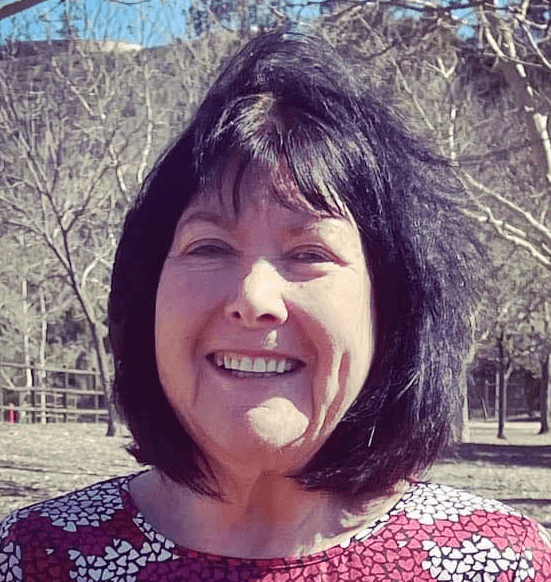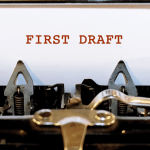 Strategies for Researching, Outlining and Writing Non-Fiction
Strategies for Researching, Outlining and Writing Non-Fiction
Writing a book is an exciting endeavor, but you need to know what you’re doing. You first need to do the research and for most people, writing an outline before you do the actual writing will help you go from start to finish. Here, I’ll share with you what I know about researching, outlining, and writing non-fiction.
First, you need to know where to go to research your book. Even if you’re an expert, go to other experts. What you want to do is get viable quotes form other experts – the more popular, the better.
Think it’s difficult to get an expert onboard – especially if you’re a relative unknown? It isn’t. Getting a quote from an expert you admire requires one thing: Asking. Will everyone you ask say yes? No, but some will and that’s all you need.
You simply send a brief email and ask if you can quote them. You can handle a quote one of two ways. You can either ask if you can interview them via email – you want the questions responded to in writing – or you can ask if you can include a quote of something they’ve already said in a written, audio, or video format.
You can also do phone interviews, but if you’re not used to doing this, it can be a little nerve-wracking. You’ll need to tape the conversation if you do this. Unless your state is a one party state for recording conversations, you’ll need to get the expert to clearly acknowledge in the beginning of the tape that he or she is aware the conversation is being taped.
You can research through professional or government agencies that deal with the topics covered in your book, you can use case studies, newspaper archives and the local library. You want to invest an many resources to educate yourself (not so you can plagiarize) and fill up on knowledge before you begin writing.
My colleague, Henneke Duistermaat of Enchanting Marketing has this to say about researching as part of the writing process. She is a top blogger and excellent writer and I value her input…
Research will help widen or deepen your knowledge. It enriches the writing experience and helps you write about topics you previously had little knowledge of. You discover new insights, make new connections, and you may even gain new experiences and new wisdom.
Outlining Your Writing
Outlining a non-fiction book, or even an information product is important because you have to know where you are starting from and where you’re going. An outline is like a map of the path you’re going to take from the first chapter to the final one. You want an outline because you can later use it as a basis for your table of contents page and/or your sales page.
When writing an outline, you just need to write down your key points and any sub-points. You may also want to summarize your book in a sentence or two. This will help keep you on track.
To date, I have written and published more than twenty full-length, non-fiction books. It’s my favorite genre, and a quite lucrative one once you make a name for yourself. I even teach my process twice a year to small (no more than fifteen) people in a course I teach live called 10 Week Author.
We begin each class by discussing why we want to write our first, or next book. Next, we think about what the book will be about and who it will serve. Finally, I share my proprietary twelve chapter outline that continues to be effective for me.
Henneke also has thoughts on why it’s important to outline your writing…
Why outline?
Imagine cooking a celebratory feast …
You have a delicious starter to prepare. Perhaps an amuse bouche, too. You have several main dishes that all need to get on the table at once. And then there’s dessert. Plus coffee, cognac, and chocolates.
Would you start cooking without a plan?
That would be disastrous, wouldn’t it?
You know you need to plan in advance, so your perfectly char-grilled steak doesn’t go cold while you’re steaming asparagus and preparing pepper sauce.
When you cook a festive meal, you avoid experimentation, and implement a carefully thought-out plan.
So, what do you do when you write?
Writing is, of course, not the same as cooking. But just like with cooking, you can create a plan of what to write. That plan is an outline.
Writing Your Non-Fiction Content and Stories
Once you’ve done your research and written the outline, you’re ready to write your non-fiction book or product. When you’re writing, remember to stay on topic, because it’s easy to wander.
I think of all of my writing as storytelling in a focused, organized, and deliberate process. Keep a notepad or digital page available to you at all times so that you can capture your thoughts and ideas and share them at a later point in time.
These are the steps Henneke shares, in regards to the steps in the writing process…
First Draft:
The aim of a first draft is to get your thoughts on paper, no matter how roughly.
At this stage it doesn’t matter how good or bad your writing is. You can’t revise a blank sheet of paper but you can turn a rough first draft into a shiny piece of content.
Revise:
Revising and editing your content goes faster if you do it in several steps. The first step is to check the focus and flow of the content. Is any information redundant? Is anything missing? Is the order logical?
Edit:
After you’ve restructured your content and you’re satisfied with the overall flow, it’s time to edit your writing sentence by sentence.
You make each sentence concise, vivid, and human. You pay attention to tone and rhythm. You polish your words until your message shines brightly.
Proofread:
Proofreading your own text can be hard as we don’t always see our own mistakes. You may want to hire a proofreader or try an app like Grammarly to check for grammar and spelling mistakes. If you proofread your own work, leave your text for at least 24 hours so you can look at it with fresh eyes.
Format:
The last step before publication is to format your text.Is there enough white space to make reading a pleasurable experience? Can you add images to help explain your ideas more clearly? Does your layout invite a web visitor to start reading—even if they’re in a hurry?
As you can see, researching and outlining your non-fiction writing is an ongoing and evolving process. Keep your audience in mind as you write. Use your voice and not someone else’s voice. You weren’t meant to be a carbon copy of someone else. Don’t be afraid to tell it like is and don’t box yourself in as you write. Write with emotion.
I’m bestselling Wall Street Journal and USA Today author, marketing strategist, and entrepreneur Connie Ragen Green and I would love to connect further with you to help you to achieve your goals. If you are interested in learning how to optimize the syndication of your content, please take a look at my popular Syndication Optimization training course and consider coming aboard to increase your visibility, credibility, and profitability.







I love your writing and hope you find peace in whatever you decide. Just realize that you have fans who will read whatever you write as long as we can find it. Keep us posted!